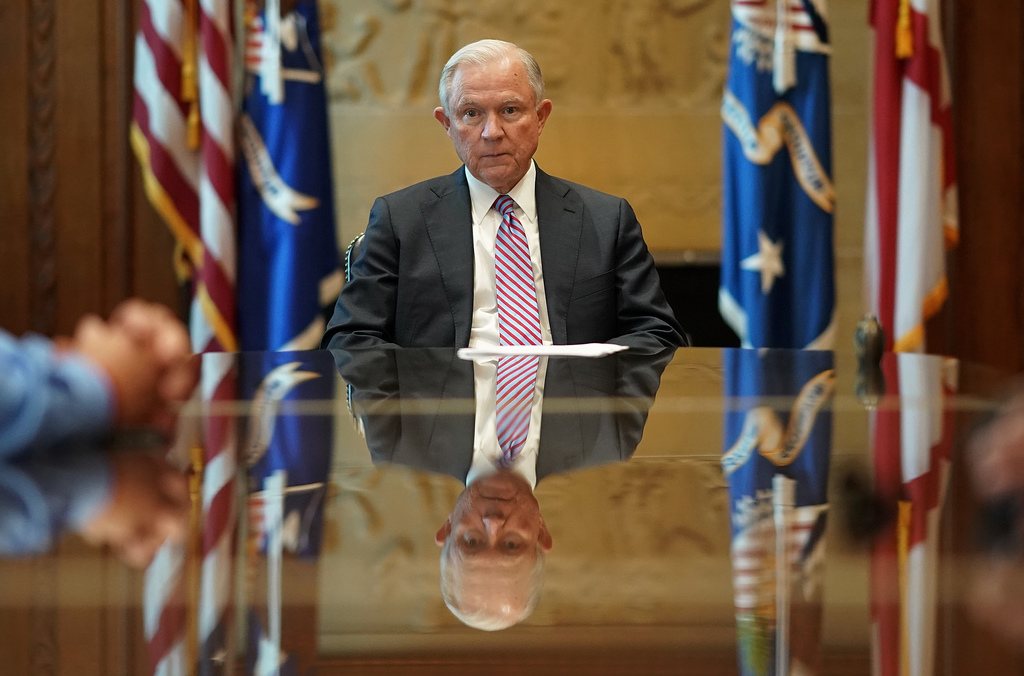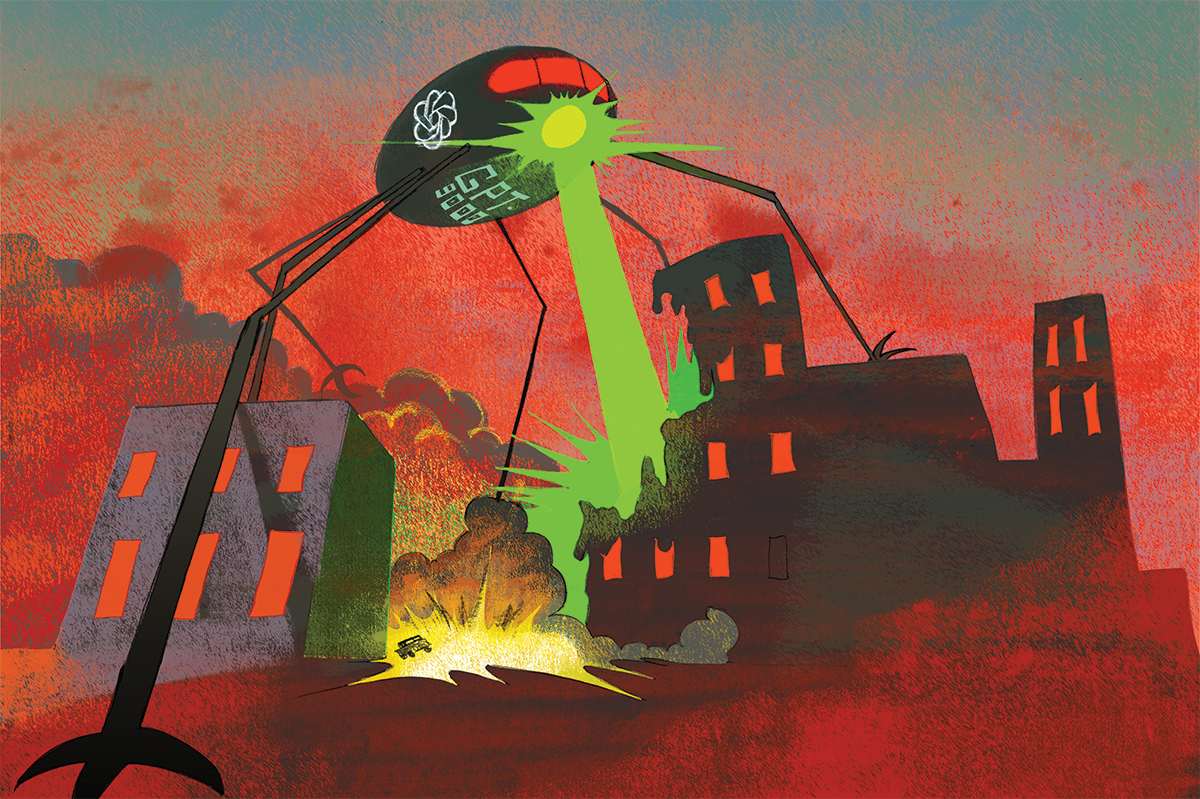Attorney General Jeff Sessions has become America’s most powerful political orphan. He is a man without a party—he’s not a Trump Republican because President Trump considers him a failure, if not personally disloyal; yet he’s not a typical non-Trump Republican, either, because he’s significantly to the right of most other GOP leaders on issues ranging from immigration to marijuana legalization. Sessions is a party of one. So how does he hang on as the nation’s top law-enforcement official?
The answer is ecological: Sessions is a political platypus, if you will, neither fish nor fowl but perfectly adapted for the niche he occupies. His right-wing ideological credentials, perhaps uniquely, cannot be impeached even by the president, frustrated though Donald Trump certainly is at Sessions’s failure to rid him of that meddlesome Russia investigation. At times when Trump’s hard-right base doubts whether the president himself is really committed to building that border wall, it has no such doubts about Sessions, who would be pursuing the most restrictionist policies possible on immigration no matter who was president or what office he held. Sessions has lost the president’s trust, but not the trust of the president’s base.
At the same time, he maintains some respect on Capitol Hill, even if few of his former colleagues would dream of taking the hardline, even reactionary positions that Sessions has staked out as AG. Like the rest of the country, the Republican Party is moving slowly toward embracing marijuana’s legalization. The recent volte-face of John Boehner, from drug warrior as speaker of the House just a few years ago to lobbyist for the marijuana industry today, is a sign of things to come. (And Boehner is hardly the first Republican to drop his pretense of objecting to pot once leaving office: Bob Barr, the Libertarian Party’s 2008 presidential nominee, had been a staunch drug warrior throughout his years in Congress as a Republican.)
Cory Gardner, Republican senator from Colorado, where pot is legal, was outraged by Sessions’s rollback of Obama-era Justice Department advice to federal prosecutors not to pursue marijuana cases in states that had decriminalized the drug. Gardner even put holds on the confirmation of any more Justice Department officials, until Trump made a deal over his attorney general’s head: the administration would respect states’ rights with respect to marijuana legalization after all. Trump did not come into office as an all-purpose reactionary, despite what his detractors might say, and launching a renewed war on a drug that even presidents have admitted to using was never part his agenda. Sessions’s crusade, a throwback to the anti-drug absolutism of 20 or 30 years ago, was Sessions’s alone.
Yet collegiality still counts in Washington, and Sessions is for many on Capitol Hill an anchor of stability and good order in an administration that is otherwise far too turbulent for the tastes of Congress’s political professionals. Even Sessions’s unforgivable sin in the eyes of Donald Trump, his recusal of himself from oversight of investigations into the president, is actually reassuring to other Republicans, including some who have publicly denounced special counsel Robert Mueller. They suspect, with good reason, that if the attorney general were to intervene personally to fire investigators and terminate investigations, the result would be a repeat of the backlash against the “Saturday Night Massacre,” in which Richard Nixon triggered the resignation of his top two officials at the Justice Department by ordering them to dismiss Watergate special prosecutor Archibald Cox. Far from bringing an end to the Watergate scandal, Nixon’s actions hastened the end of his presidency. Firing James Comey as FBI director didn’t do anything to put paid to Trump’s difficulties—just the opposite, of course—and firing Sessions would not help, either. As long as Sessions remains in office, however, safely recused and quarantined from the investigation, no comparisons to Nixon’s final days can be drawn. The integrity of the process remains intact, and Trump’s irascible tweets are mere words.
All this has been enough to keep an isolated and besieged Sessions in office until now. He is a miniature administration unto himself, the president of the Justice Department, pursuing an agenda of his own that happens to overlap with Donald Trump’s on matters of immigration but that is all about Sessions in other respects. The attorney general represents a direction the American right might have taken if Donald Trump had never arrived on the scene: Sessions is more conventional than Trump both in terms of the anti-drug politics of the recent Republican past and in his respect for protocol and procedure. What Sessions represents is not likely to make a comeback, but with Trump the future arrived before it was fully formed—-or at least fully staffed—and so the old and new have coexisted for a time. In the end, though, Jeff Sessions’s fate seems clear, and it draws ever nearer.

























